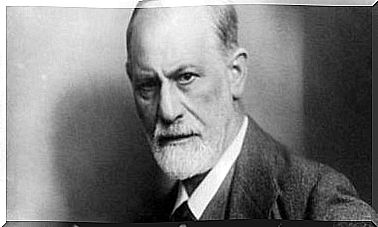When Things Come When You Stop Looking

Some call it magical moments, when things “click”. It’s those moments when suddenly, what we’ve been dreaming about, looking for, or waiting for so anxiously, happens out of nowhere.
It wraps you in its warm arms as you turn the corner or pops up in your email one day… Just when you’ve stopped looking, fate gives you an unexpected gift.
The world is unpredictable and sometimes chaotic. It feels like a maze with no exit. And actually, there are many more of these magical moments than we realize.
Some associate these occurrences with the very attractive “science” of happiness. But real experts in the field know the truth about these “coincidental” occurrences. When our dreams come true, the magic wand of chance hits us. Behind these moments is a bit of science and a lot of psychology…
An example can be found in The Medici Effect. In this very interesting book, Frans Johansson explains why it is sometimes not enough to be a total expert in a field to be successful.
In fact, focusing all our efforts, time and energy on one goal does not guarantee 100% that we will achieve it. Sometimes we have to take a little distance.
We need to get different perspectives and think less linearly, but think more creatively. A way that is flexible, patient and original.
And there is something just as important that we should not forget. Sometimes the most unexpected actions are guided by our subconscious.
When we distance ourselves a little from our conscious, rigid, sometimes obsessive and always analytical mind, our sixth sense wakes up and, believe it or not, it is never wrong.
Take a minute and think about it.

Even when you stop searching, your brain is still receptive
Andrea has a small business that is not going well at all. She knows that her pastry shop is not making a profit and in a few months she will have to close the shop. She spent several weeks trying to figure out what to do.
With all the pressure, all her fear and grief at closing her family business, tears suddenly begin to fall down her cheeks. She’s exhausted.
But the next morning she wakes up with a clear rest. She says this to herself: “It’s settled, what needs to be done will happen and I’ll see what happens.”
She takes a shower feeling a pleasant calm and the right kind of mental peace. As she showers, a notification pops up on her phone from one of her social media networks.
When she picked up the phone, Andrea had a sudden surge of inspiration. She continues her business online, puts her shop on social media and makes special pastries and cakes for parties and events.
This is a simple example of how our brains work when we stop putting pressure on them. We see how they become even more receptive as we lift them out of the fog of fear.
We explored these magical moments, but ran into another fascinating topic: intersectional thinking.

Intersectional Thinking
As humans, we have a certain habit in common. This is the habit of predicting everything that might happen if we do or don’t do certain things.
We create spreadsheets in our minds. We add columns, analyze facts, connect variables and make exhaustive, sometimes fatalistic predictions.
Instead of using our very linear and analytical left hemisphere of our brain, it would be much more useful for us to apply intersectional thought. They are characterized by the following:
- Being able to make connections between information and stimuli that have nothing to do with each other.
- A person capable of intersectional thinking can find calm in the midst of chaos.
- In the midst of this balance and tranquility, a person who practices intersectional thinking can connect with everything around him because he is open, receptive and curious. Because he likes to “play” with all the information he collects, tests, throws away, invents and transforms…
Also, these people will not obsessively look for a single solution to their problems. They usually let themselves be carried away by their environment. And they accept the unexpected, the accidental…
Happiness is really knowing how to recognize opportunities
Sometimes you need the right circumstances to be happy in life. But if we want these conditions to arise for us, our brain has to make the decision to know how to spot opportunities where other people will just see a closed door.
However, we want to be clear about one thing. Happiness has nothing to do with magic. There are coincidences, but often they are “coincidences” caused by that extraordinary and beautiful organ: the brain.
That’s something we should have a lot more confidence in. Only when we free our minds from fear, limiting attitudes, anxiety and obsessions will our entire brain expand and transform. They will start functioning at 100%.
That will make us receptive. And this gives us the chance to listen to the inner, wise voice that often leads to real opportunities.
So let’s not just obsessively focus on looking for that concrete thing we want. Let’s learn to be more receptive. To see the bigger picture.

Images thanks to Ben Giles









